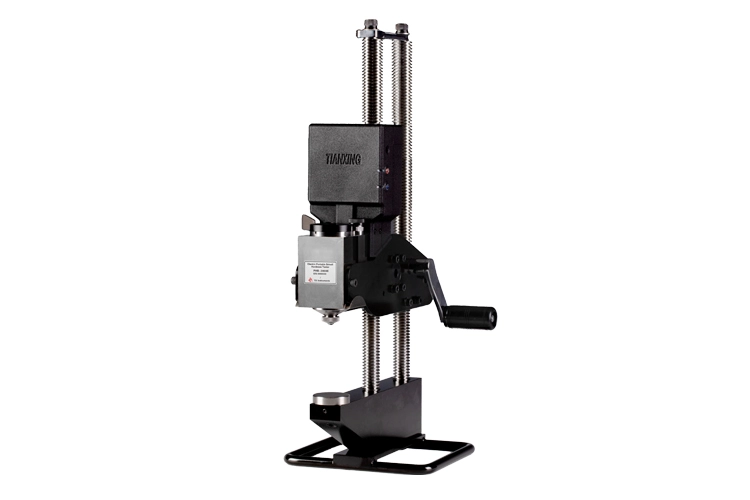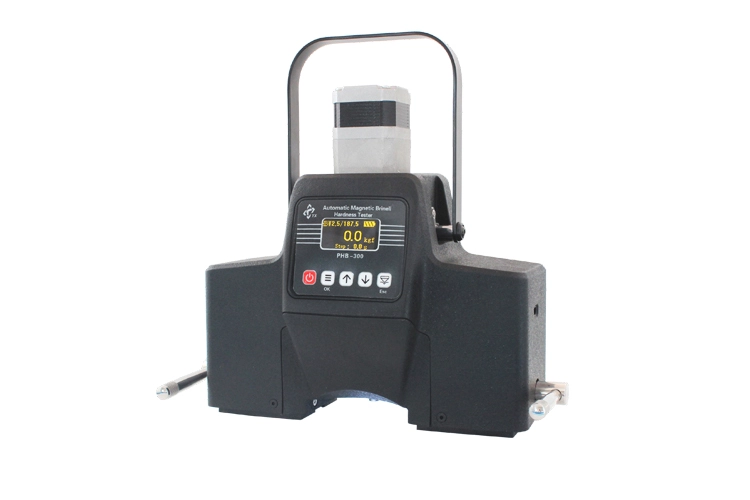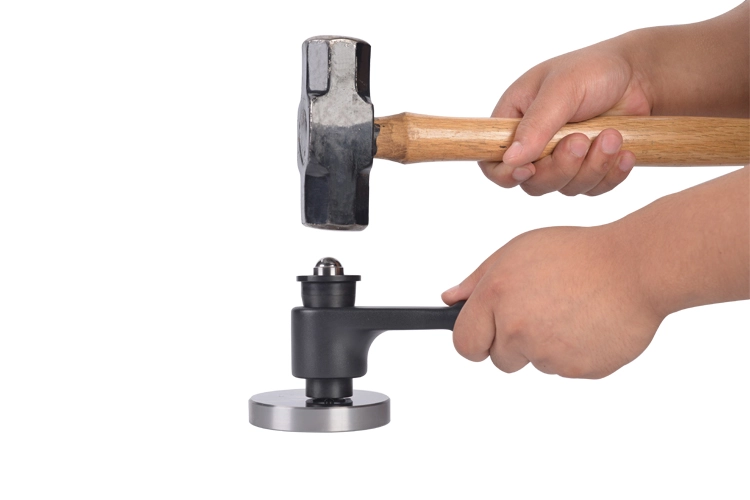
From a worldwide perspective, Brinell hardness tester machine for sale is a widely utilized hardness checking instrument for measuring material hardness, particularly effective for testing the hardness of forged steel and cast iron with uneven microstructures. Our Brinell hardness test equipment can be specifically subdivided into portable Brinell hardness testing machine, magnetic hardness testing machine, and pin Brinell hardness tester machine. As a leading Brinell hardness tester machine manufacturer and supplier, we ensure that all our products meet international standards. For those in need of more robust solutions, large Brinell hardness tester machines are available.
From a worldwide perspective, Brinell hardness tester machine for sale is a widely utilized hardness checking instrument for measuring material hardness, particularly effective for testing the hardness of forged steel and cast iron with uneven microstructures. Our Brinell hardness test equipment can be specifically subdivided into portable Brinell hardness testing machine, magnetic hardness testing machine, and pin Brinell hardness tester machine. As a leading Brinell hardness tester machine manufacturer and supplier, we ensure that all our products meet international standards. For those in need of more robust solutions, large Brinell hardness tester machines are available.



In the realm of material testing, the Brinell hardness tester machine for sale stands out as an essential tool for assessing the hardness of various materials. As industries continue to prioritize quality and durability, the role of Brinell hardness testing machine manufacturers and suppliers becomes increasingly vital. These Brinell hardness tester manufacturers and suppliers provide state-of-the-art Brinell hardness test equipment that ensures accurate and reliable results.
Brinell hardness tester machine for sale determines a material’s resistance to deformation under load, providing a reliable measure of its strength and wear resistance. These hardness checking instruments are essential for industries like automotive, construction, and aerospace. By verifying material properties before production, Brinell hardness tester machine for sale reduces the likelihood of defects, ensuring consistent product performance and reliability. Brinell hardness test equipment helps industries stay compliant with quality standards while optimizing manufacturing processes.
When searching for reliable Brinell hardness tester suppliers, it’s crucial to choose those who offer a comprehensive range of Brinell hardness testing machines tailored to different material types. By relying on trusted Brinell hardness testing machine manufacturers and suppliers, organizations can achieve precise measurements and maintain high-quality standards in their products.

Brinell hardness tester equipment is mainly used to measure the hardness of cast iron, steel, non-ferrous metals and soft alloys. Brinell hardness tester manufacturers often offer a range of models, including large Brinell hardness testers for more substantial testing needs. Rockwell hardness test equipment is mainly used to measure the hardness of metals and hard materials, such as steel, tungsten steel, tin bronze and so on. However, for those dealing with softer or unevenly structured materials, the Brinell hardness tester for sale remains the preferred option.
The Brinell hardness test equipment is to press the cemented carbide ball with a certain diameter into the surface of the sample under the action of the specified detection force, measure the surface diameter of the imprint, and calculate the hardness value of the work piece according to the indentation diameter.
Unlike brinell hardness testing machine, rockwell tester for sale is to use 120°diamond cone, quenched steel ball and cemented carbide ball (with specified diameter) as indenter, press it into the surface of the tested material under a certain load, and calculate the hardness of the material from the depth of indentation.
Due to the difference in principle, the hardness range of this handheld hardness tester is limited, and it is generally used to test the hardness of materials below 500HB. Rockwell hardness test equipment is suitable for higher hardness range, up to 70HRC. Brinell hardness tester manufacturers provide large Brinell hardness testers that are ideal for testing materials with a broader range of hardness values. Considering the Brinell hardness testing machine price, these machines are a valuable investment for ensuring the quality and durability of your materials.
The method to use Brinell hardness test equipment by TX, an experienced hardness tester factory, is to press a certain diameter of hardened steel ball or carbide ball, into the metal surface to be measured with a specified size of test force. Maintain this force for the specified time, and then remove it.
Utilize a reading microscope or Brinell indentation measurement system to measure the indentation diameter of the tested surface, thereby the Brinell hardness testing machine obtaining the Brinell hardness value directly.
After testing by Brinell testing machine, look up the conversion table to get the Brinell hardness value if used the reading microscope. The Brinell hardness is calculated by the quotient of the test force divided by the indentation surface area.
Before the Brinell hardness test, make sure that the surface of the workpiece to be tested has a plane large enough for the indenter of the Brinell hardness tester to press vertically into the plane. Then the test force is applied normally for routine measurement.
It is performed by portable brinell hardness testing machine through using an indenter to apply test force to the surface of the metal material, holding some seconds and then remove the test force. The ratio of the test force to the indentation surface area is the Brinell hardness value.
Brinell hardness test is widely used to test the hardness of metal materials. It can reflect the compressive capacity, wear resistance and strength of the material, which is of great significance for the quality control and material selection.
Because the indentation obtained by Brinell hardness testing method is large, its hardness value through portable brinell hardness tester is less affected by the uneven composition of the tested sample, the dispersion of the test results is small, and the reproducibility is good, which can well reflect the real hardness value of the material.
In industrial production, the Brinell hardness value of workpieces shall be tested strictly by brinell hardness testing machine in accordance with ASTM and ISO standards.
Generally, the ambient temperature during testing should be between 10℃ and 35℃.
For the selection of test force and indenter diameter in Brinell hardness testing, please choose according to the relevant provisions of ASTM and ISO.
Before the test, the surface of the sample should be smooth, free of oxides and other dirt.
Because portable Brinell hardness testers typically use cemented carbide balls with larger diameters and higher load forces to measure the hardness of Brinell, the surface area of spherical indentation is generally larger, so that the Brinell hardness value has a good overall representation and will not be affected by the individual structure of the work piece to be measured. Because the indentation produced during Brinell hardness testing is large, it is not suitable for measuring the work piece that is too thin, and it will leave a permanent indentation on the surface of the work piece after testing, which is destructive testing, so the work piece with special requirements is not suitable for this testing method.
